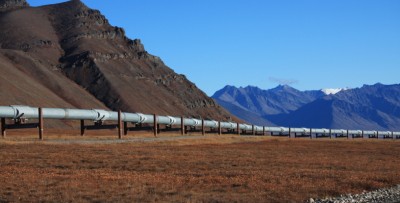Canada: New Oil Pipelines Will Not Solve Alberta’s Economic Woes or Support a Clean Energy Transition

New pipelines from the Alberta to tidewater would do nothing to help Canada’s oil industry cope with low oil prices. Contrary to assertions made by the Canadian Association of Petroleum Producers today and Natural Resources Minister Carr on Tuesday in interviews, there is no longer a sound economic argument for increased market access to tidewater.
“Oil-to-tidewater is a dated argument that doesn’t match the reality of world markets anymore – using it suggests either a misunderstanding of how oil markets work, or a deliberate attempt to mislead Canadians into thinking that new pipelines are somehow good for our economy,” says Lorne Stockman of Oil Change International. “Alberta and Canada have so much potential to lead the world towards a safer climate future, but they will have to let go of their pipe dreams in order to get us there.”
A briefing note released by Environmental Defence, Oil Change International, and the Natural Resource Defense Council outlines three reasons why tar sands oil producers would not get higher prices if they had new tidewater access to global markets:
- Recent expansions in pipeline capacity have eliminated the regional bottleneck, and subsequent price discount, in the U.S. midwest markets;
- any oil sold to Asian and European markets would likely fetch lower prices than those received at the largest heavy oil markets in the world: the U.S. Gulf Coast and the U.S. midwest; and
- any price distortion created by the crude export ban in the U.S. has disappeared since the ban was lifted in late 2015.
“Suggesting that pipelines can power an economic recovery in Alberta and Canada is not only wrong, but threatens to lock Canada further into decades of further exposure to a boom and bust commodity cycle,” says Hannah McKinnon of Oil Change International. “The Federal and Alberta governments should avoid repeating the mistakes of yesterday and instead build a prosperous, stable economy based on clean energy.”
The Canadian Government has been firm on its commitment to climate action following an ambitious showing at the Paris climate talks, but a large gap still must be closed to meet even existing climate goals made by the previous government.
“If Canada is serious about climate leadership, it will step away from its fixation on hitching us to decades more production in the third largest oil reserves on the planet – the Alberta tar sands,” says McKinnon. “The tar sands simply can’t have a central role in a decarbonizing economy, and as it stands, they threaten to undo much of the good Canada is doing elsewhere to rebuild a climate legacy that we can be proud of.”
The full briefing note can be found here
For further inquiries:
Hannah McKinnon
[email protected]
Lorne Stockman
[email protected]

